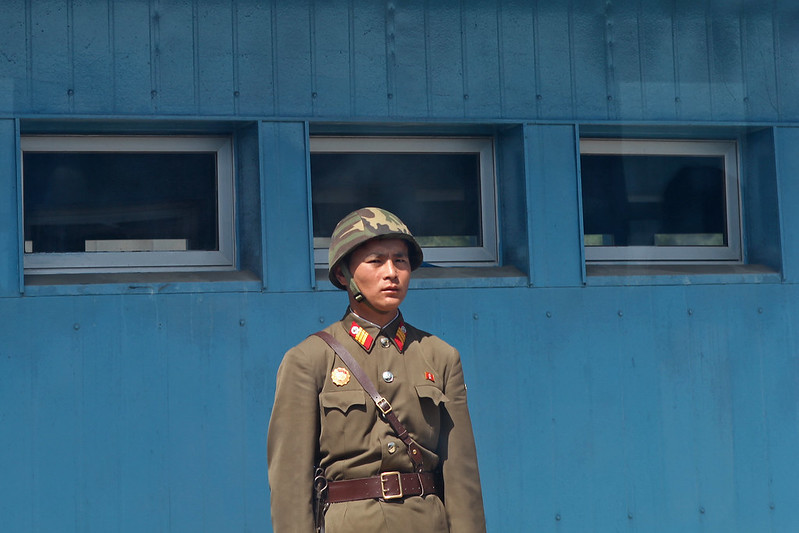JOO HEE HEIDEBRINK
The Korean student Im Sook, a bit shy, was present at the expert meeting as well. She came as a representative of the SAGE (see below) working group that published the book on the political prison camps in North Korea, titled ‘Where Love Does Not Exist’. Im Sook provided the text of the book that consists of drawings and pictures of political prison camps, and testimonies of survivors. The aim of the book was to raise awareness of the human rights situation in North Korea among their South Korean peers, research group wanted the public to “pay attention to this place deprived of love”.
After the COI report was released, the SAGE working group has slightly changed its themes, which are now divided into political prison camps, ordinary prison camps, and abduction. The Handong University Society of North Korean Human Rights (SAGE) was established in 2008 and counted 16 members. The working group chose the political prison camps as their main subject because, for them, the camps were one of the “most obscure and hidden” subjects among the human rights issues in North Korea. According to the students these camps were where the most structural and pervasive human rights violations take place.
Im Sook and the SAGE working group hoped that the public would “pay attention to this place deprived of love” because according to them it should not be forgotten. In South Korea, there has generally been little interest in and knowledge of the lives of their Northern neighbours, especially among the youth focused as they have been on their own lives, and careers.
One of the objectives of SAGE was to raise awareness about the North Korean human rights issues among the South Korean public, and especially among the younger generation. To enhance empathy for the fate of the North Korean people became an important task in order to inspire public action and to overcome the traditionally indifferent attitude of inaction. In 2010, the student collective exhibited their findings compiled by pictures, photographs, and videos, in a very ‘hip’ and trendy neighbourhood in Seoul. The exhibition attracted more than 25,000 people. Every night another lecturer was invited, including a number of former political prisoners. The students believed that “the silent tragedies” taking place in North Korean political prison camps were sure to be heard in the exhibition, preferably “felt by heart and accepted by minds”. For them, to touch the audience was especially important since little hard evidence could be provided, as North Korea could not, and cannot be accessed for further investigation in the field.
The exhibition ‘Where Love Does Not Exist’ served as a rescuing campaign as well. Once the young audience realised that people of their own age were imprisoned they became motivated to help. Members of the SAGE group hope that “the South Korean youth can be the vanguard of a change in attitude”.
Joo Hee Heidebrink (1983) was born in South Korea but grew up in Amsterdam, the Netherlands. She is a Master Student in Holocaust and Genocide Studies at the University of Amsterdam, where she previously obtained a Bachelor’s Degree in Cultural Anthropology and Non-Western Sociology. She specialised in state violence and terrorism, and the mystification of national identity in the writing of history in Sri Lanka and the simultaneous myth making processes of the Tamil Tiger suicide missions. Presently, her Master thesis investigates the political prisoner camps in North Korea in the context of the DPRK state ideology. For her research she did an internship at the Korea Institute of National Unification (KINU) in Seoul, South Korea and she spoke with a camp survivor who currently lives in in the South. She wishes to specialise in North Korea and Transitional Justice issues in both South and North Korea.
